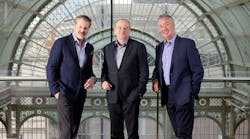Operators today have a tough job. In order to make money, they must increasingly become more things to more people. Let me explain. First, operators must find locations that want vending machines, micro markets or office coffee service – within terms agreeable to both parties. This sounds easy, but there are locations still looking to vending specifically, as a way to make money. These locations just want high commissions and are less interested in how an operator can actually invest what would be commissions into offering more healthy products, adding cashless payment options or offering a more technologically advanced vending machine.
Then there are locations at the other end of the spectrum. They look to their vending, micro market and OCS operator as a service provider that will help them transform the breakroom 'must haves' (perhaps free cheap coffee and a vending machine or two) into foodservice that lures and benefits employees. These companies are looking to make food, snacks and drinks part of the benefit package that keeps top performing employees and makes the company a great place to work.
Then there are all the companies in-between these two extremes. Perhaps they want a partner to help them create a corporate health and wellness initiative with healthier products in the vending machine, or fresh food products in micro markets. Perhaps they want to save money but still offer high quality drink benefits by switching from 5 gallon bottled water to a point-of-use water filtration system and from cartridge single-cup coffee to beans, pods or back to traditional brewing.
The mysterious end user
Then there is the consumer, the people who actually spend money on the products. Discovering and then meeting the demands of this segment is vitally important, but difficult as it's very hard to communicate with them in a meaningful (and revenue generating) way. Operators are most in contact with the account decision maker, such as a facility manager or human resource contact. This one person makes lots of decisions for the company. And some of those decisions don't benefit the operator (such as a request for 100 percent healthy items in the vending machine, or a random flavor of soda that doesn't sell well, because it's their favorite). Operators can rarely ask the employees and end users at locations what they would buy. Operators try to guess, or set up a standard plan-o-gram that works across multiple types of locations. However, in this day and age where there are multiple generations in the workforce, with some very different likes and dislikes, a standard set of products will never produce the most profitable results. And operators are feeling the strain.
Rescripting and rebranding
It's time to embrace change. It's imperative that operations realize that the diversity among people, locations and even regions requires a more consultative approach to providing service. Vending operators especially, are really moving from a retail based business model to a service based. The service isn't snacks and soda, it's becoming a breakroom expert. It's not about a plan-o-gram, but about analyzing data and using that to produce better results and work with the location decision maker to achieve a win-win scenario. It's not about restocking the pantry, but being a partner to the location and figuring out how to save them money or enhance employee benefits. Ultimately the services need to be convenient with a health conscious approach in offerings to consumers. It's not an easy job, but luckily there are brilliant operator CEOs and entrepreneurs out there ready to evolve with the times and offer a full range of services, not just commodities, to their customers.





